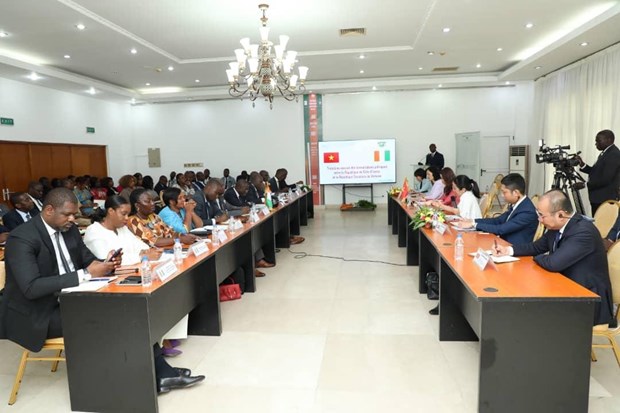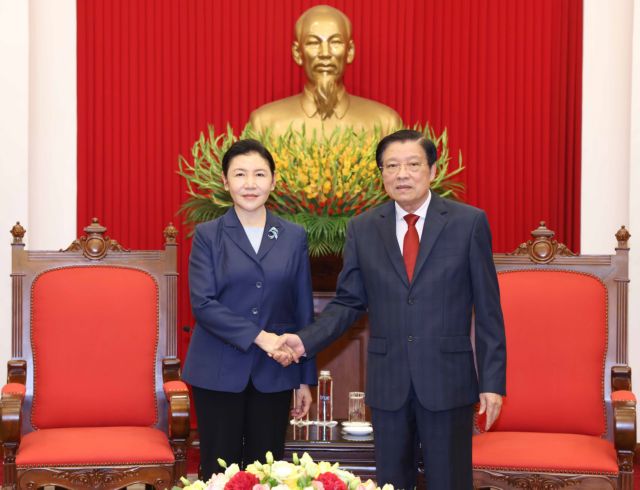 Society
Society

Việt Nam needs new, radical, coherent policies and green business practices linking tourism with environmental protection and climate action, heard participants at a conference yesterday over sustainable tourism and climate change.
HÀ NỘI — Việt Nam needs new, radical, coherent policies and green business practices linking tourism with environmental protection and climate action, heard participants at a conference yesterday over sustainable tourism and climate change.
The conference “Việt Nam: towards sustainable tourism in the year of global climate change” was co-organised by Việt Nam National Administration of Tourism and the Environmentally and Socially Responsible Tourism Capacity Development Programme funded by the European Union (ESRT).
ESRT senior expert Peter Burns said at the conference that in Việt Nam’s tourism sector, provincial tourism departments have an awareness of climate change risk but lack the technical knowledge about adaptation and mitigation. Adaptation measures often adopted are based on individual business response, for example, a single resort trying to do what it can. They are not co-ordinated, co-operative efforts within a master plan.
However, on the science side, provincial environment departments have “excellent” scientific knowledge but remain unaware of specific problems for the tourism sector.
Peter said that government departments need greater communication and knowledge exchange.
The tourism sector should promote sharing knowledge and information as well as co-ordinating research and development programmes to enhance science in the context of tourism, he said.
Policy and learning dialogues between major stake holder groups were also needed, he said.
Nguyễn Thị Huyền, a national project co-ordinator from the International Labour Organisation emphasised the important role of public-private partnership (PPP) and community in climate change adaptation and tourism development.
Key principles for strengthening PPP and community participation are the combination of resources from involved parties, sharing experience and documents and the “win-win” principle.
The Ambassador of the Delegation of the EU to Việt Nam, Bruno Angelet said that climate change was a critical issue facing Việt Nam.
In Việt Nam, the tourism sector is facing rising sea levels, increased erosion, landslides, flooding and the severe impacts that changes in rainfall patterns will bring.
“Changes will be needed in tourism planning and management to cope with these increased threats such as coastal development planning or protecting people, and heritage sites from flooding,” he said.
Meanwhile, tourism also contributed to climate change through areas like transportation and energy consumption, he said, adding that it was important to enforce codes and rules which minimise environmental impacts, for example the introduction of greener modes of transport.
Key European cities such as Berlin, London and Florence have been transformed though extensive pedestrianisation, investment in public transport or charges discouraging cars to come into city centres.
“There is much that we can share with Việt Nam to help strengthen the tourism sector from our experience in Europe,” he said.
Deputy Minister of Culture, Sports and Tourism, Đặng Thị Bích Liên, said that Việt Nam wanted to develop sustainable tourism and offer both communities and tourists positive experiences with better awareness on the environment, culture and society.
Tourism plays an important role in the country’s economic growth. Last year, Việt Nam hosted almost eight million international visitors and served about 57 million local tourists. Revenue generated from tourism was VNĐ338 trillion (US$15 billion). International visitor arrivals to the country for the first seven months of 2016 increased by an impressive 24 per cent compared with the same period last year.
She said that Việt Nam expected to make tourism a key industry contributing to ten per cent of gross domestic product (GDP) in 2020.
She said that Việt Nam’s tourism saw relatively fast growth but faced difficulties in competitiveness, sustainability and climate change impacts.
Liên applauded assistance and co-operation from the EU Delegation in Việt Nam, relevant ministries, agencies and localities to speed up sustainable tourism development in the country.
The European Union-funded ESRT programme was launched in 2011 with activities in policy support and institutional strengthening, product competitiveness and public- private dialogue plus vocational education and training.
The programme expects to complete “Good practice Guidelines on Sustainable Development of Việt Nam Tourism Sector” next month, that provides understanding about climate change, its impacts to Việt Nam and particularly to tourism, relevant policies, action planning, adaptation scenarios and communication as well as local/international best practice case studies.
The completed guidelines would be transferred to Việt Nam National Administration of Tourism. — VNS









